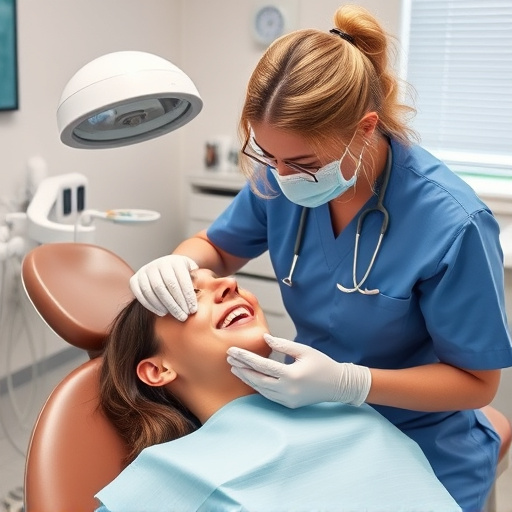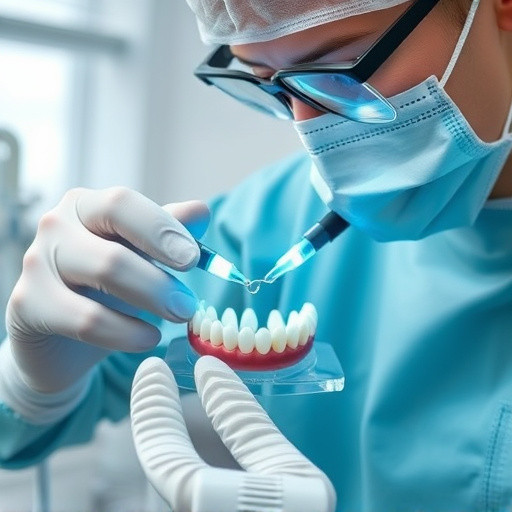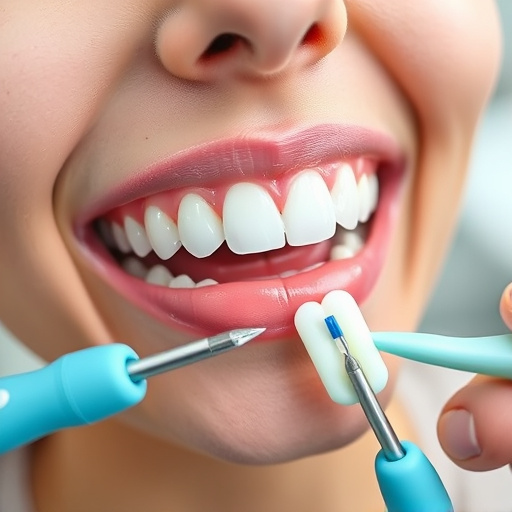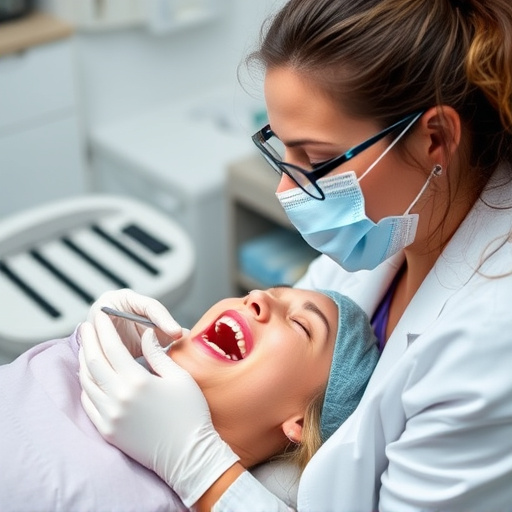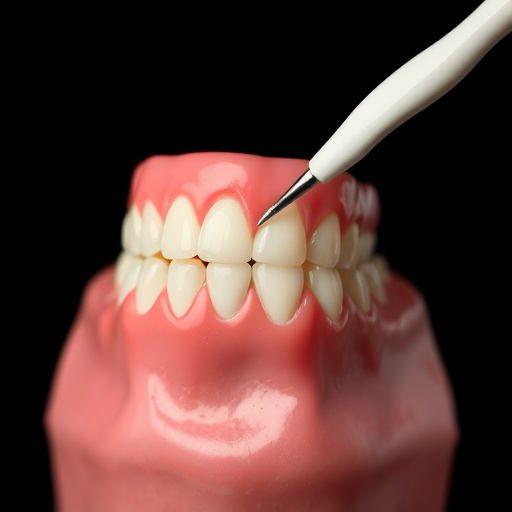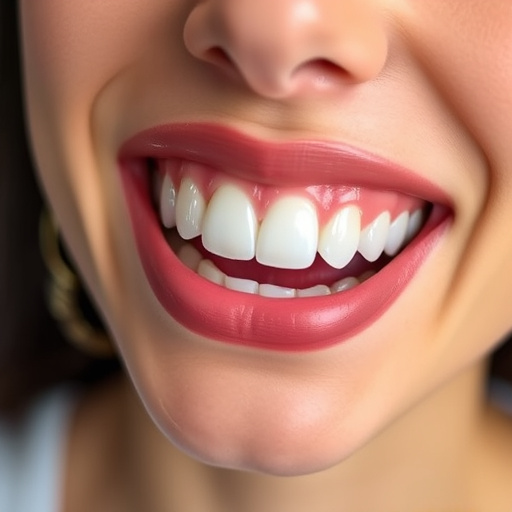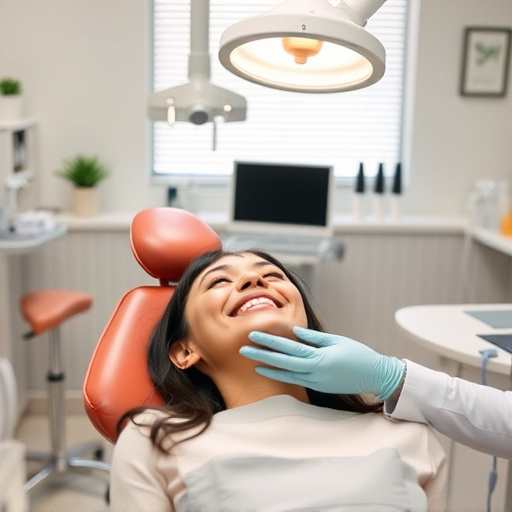Emergency dental situations require immediate attention due to potential infection risks. Ignoring severe toothaches, injuries, or infections can lead to complicated complications. Preventive dental care, including regular cleaning and check-ups, is crucial for maintaining oral health and reducing infection probabilities. Cosmetic fillings and procedures like dental implants also play a significant role in infection control. Prompt access to emergency dental services and proactive preventive care are essential for safeguarding overall well-being.
Emergency dental care plays a pivotal role in minimizing infection risks, especially in urgent situations. This article delves into the critical aspects of emergency dentistry and its impact on patient health. We explore how understanding emergency dental scenarios can help prevent infections. Additionally, we highlight the significance of preventive dental care as a strategic tool for infection control. By accessing emergency services strategically, individuals can reduce potential risks and maintain optimal oral health.
- Understanding Emergency Dental Situations and Their Impact on Infection Risk
- The Role of Preventive Dental Care in Infection Control
- Accessing Emergency Dental Services: A Strategic Approach to Minimizing Infections
Understanding Emergency Dental Situations and Their Impact on Infection Risk
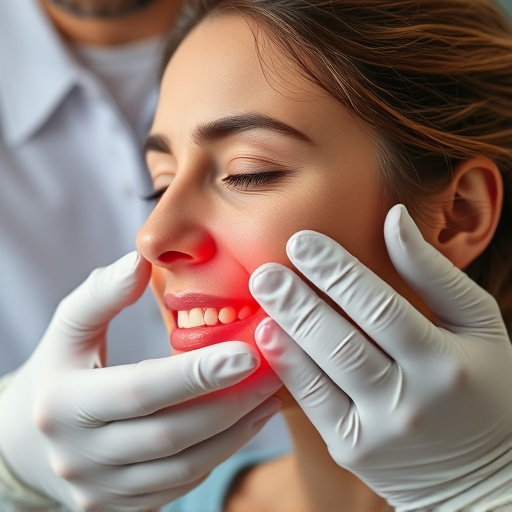
Emergency dental situations can arise unexpectedly, causing significant discomfort and potential health risks. These urgencies often involve severe toothache, oral injuries, or infections that require immediate attention. Ignoring such conditions can lead to more serious complications, including increased infection risk. Prompt action is crucial in emergency dentistry as it helps prevent the spread of bacteria and reduces the likelihood of developing severe infections.
Understanding these critical situations is essential for individuals to recognize the importance of seeking professional care promptly. Chronic oral infections or delayed treatment can impact overall health, especially with conditions like dental implants, cosmetic fillings, or clear aligners, which require meticulous maintenance. Preventive dental care plays a pivotal role in managing and mitigating infection risks associated with such complex procedures.
The Role of Preventive Dental Care in Infection Control
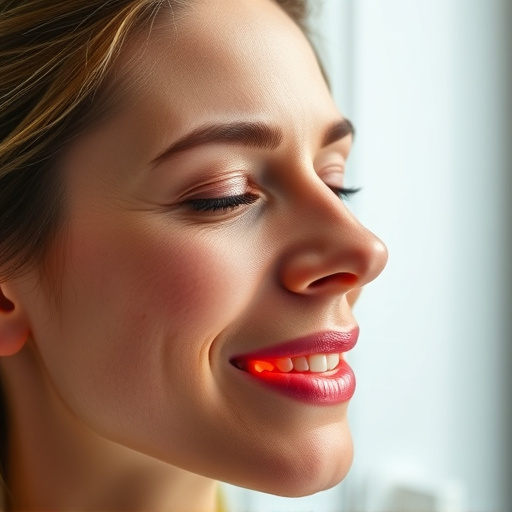
Preventive dental care plays a pivotal role in infection control, serving as a robust shield against oral health complications. Regular teeth cleaning and check-ups form the backbone of this approach, allowing dental professionals to detect and address potential issues early on. By removing plaque buildup and identifying signs of decay or gum disease, these routine procedures significantly reduce the risk of infections spreading within the mouth.
Moreover, preventive measures like cosmetic fillings and dental fillings contribute to maintaining a healthy oral environment. These treatments not only restore damaged teeth but also prevent further deterioration, reducing the likelihood of bacteria invading and causing infections. Incorporating preventive dental care into one’s routine is therefore a proactive step towards safeguarding overall well-being, as oral health is intricately linked to systemic wellness.
Accessing Emergency Dental Services: A Strategic Approach to Minimizing Infections
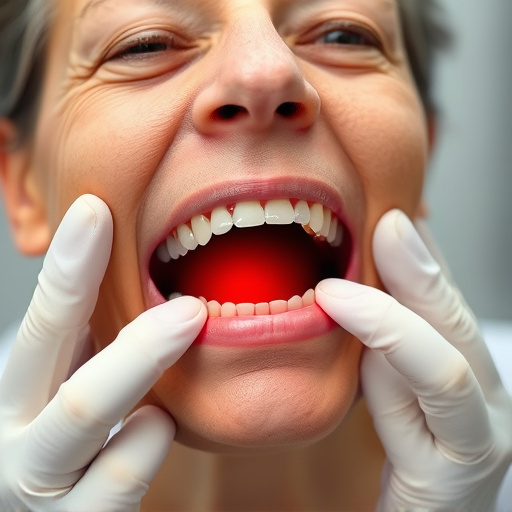
Accessing emergency dental services is a strategic approach to minimizing infections and maintaining oral health. In cases where toothaches, oral injuries, or other dental emergencies arise, prompt action can prevent the risk of infection significantly. Many people underestimate the importance of immediate care, often due to fear or misunderstanding of what constitutes an emergency. However, seeking help from a qualified dentist as soon as possible is crucial for effective prevention.
Emergency dental care focuses on addressing issues that could lead to severe infections if left untreated. This includes treatments like dental bonding or preventive dentistry procedures to restore oral health and reduce the chances of future infections. By adopting a proactive mindset towards preventive dental care, individuals can avoid more extensive and costly procedures down the line, while also safeguarding their overall well-being.
Emergency dental care plays a pivotal role in minimizing infection risks by addressing urgent issues promptly. While preventive dental care is essential for long-term oral health, emergency services are crucial in managing acute situations that could lead to infections. By accessing strategic and timely emergency dental care, individuals can reduce potential complications and maintain overall well-being. Integrating both preventive measures and quick response strategies ensures a robust approach to infection control within the dental realm.








